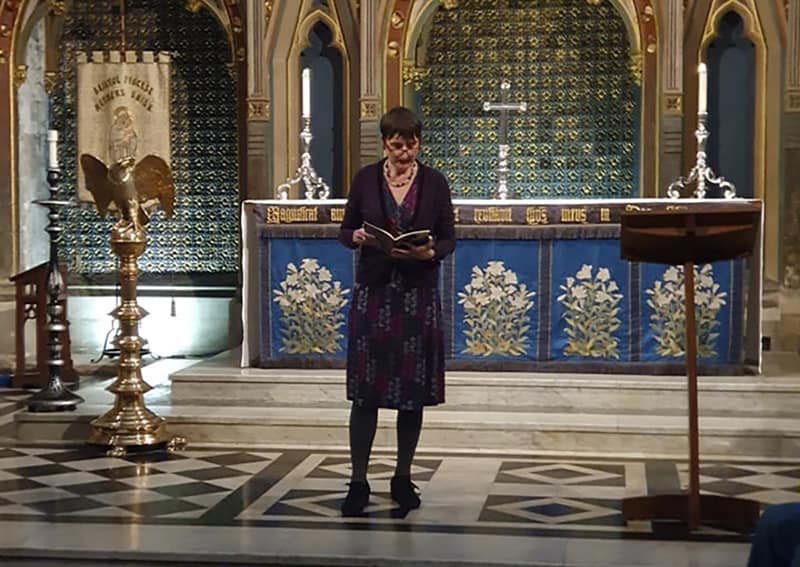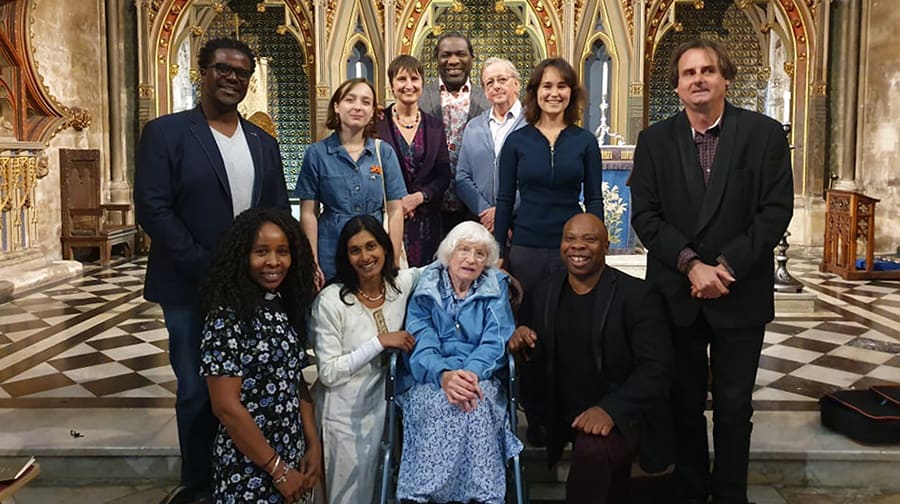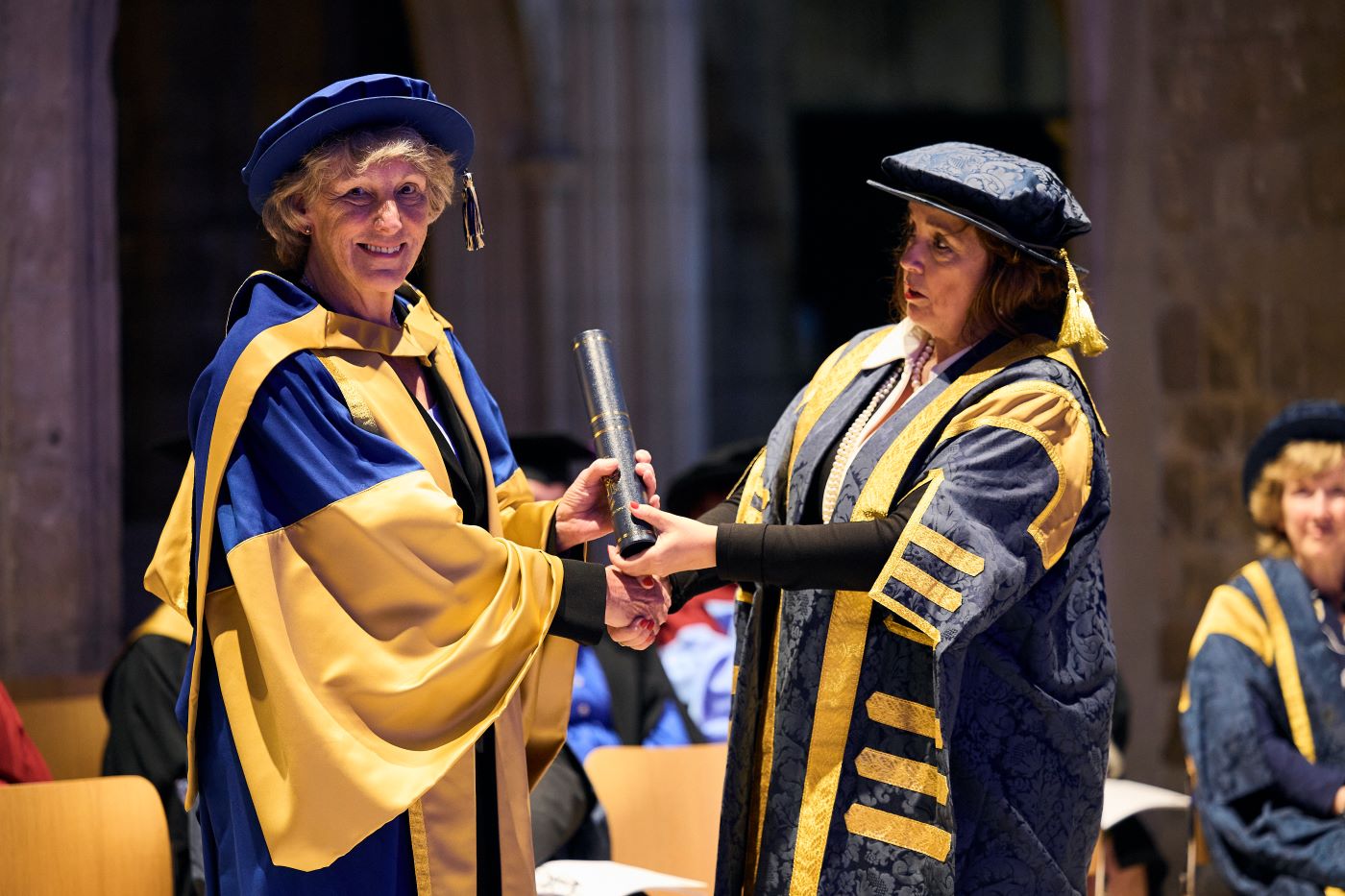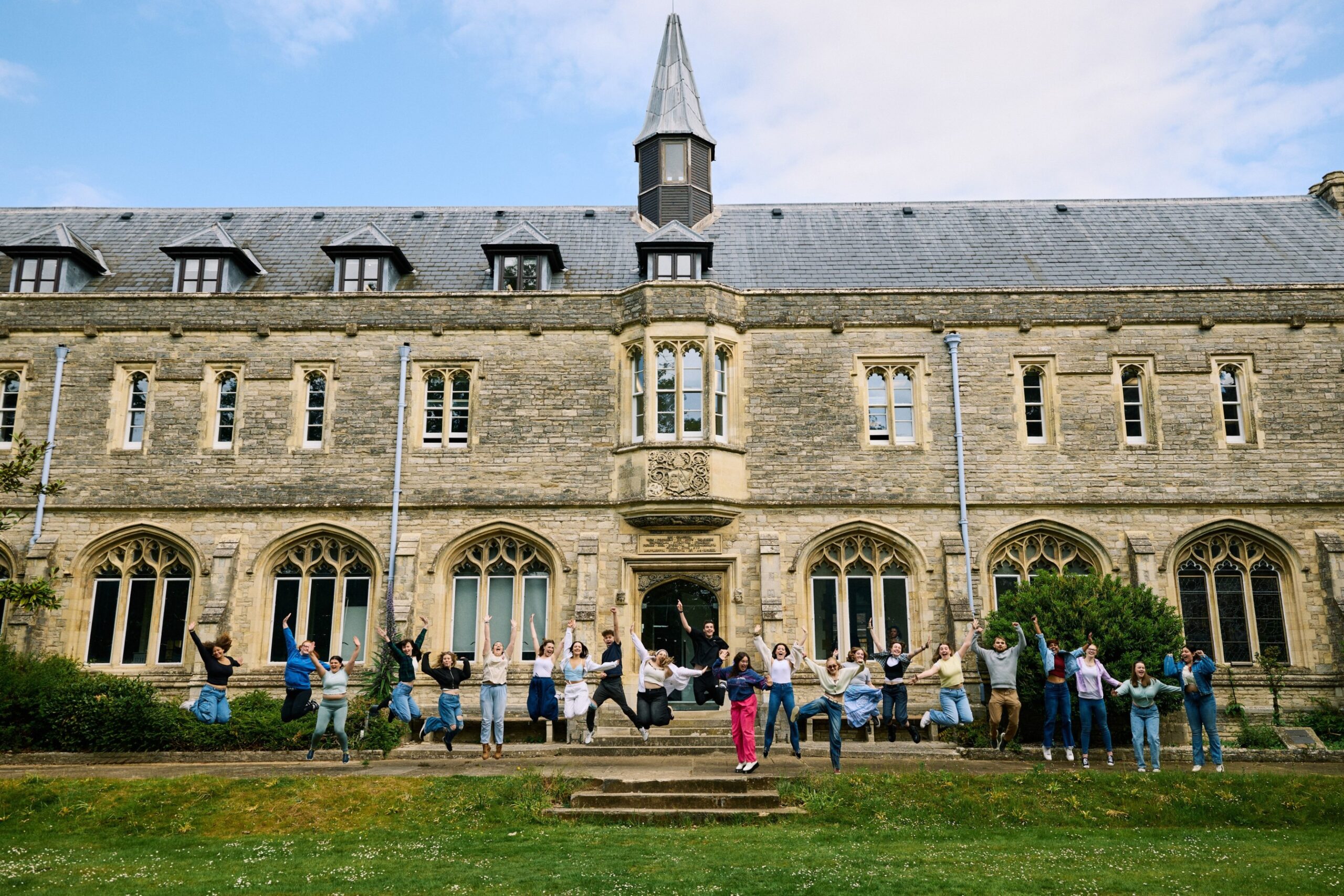University Reader wins Bristol Cathedral poetry, faith, and diversity competition

A University of Chichester lecturer has won a national writing contest for a poem on faith during the pandemic and her own recent diagnosis of Autism Spectrum Condition.
Reader in Critical Imaginative Writing Dr Naomi Foyle was given first prize for her age group for her entry, The ADHD Gardener (below), at the Bristol Cathedral poetry and faith: conversations on diversity competition. Prizes included a workshop opportunity, and the chance to read at the Bristol Cathedral Poetry Festival.
Of her win, Dr Foyle said: “Like everyone, I have found the pandemic a great emotional test, and to cope with lockdown I found myself turning more often to prayer and meditation. My poem The ADHD Gardener explores how this long period of isolation during a global health crisis affected my concept of God.
“In its image of a ‘hyperactive’ God who is everywhere at once, and all things to all people, the poem is also a celebration of neurodiversity, a very personal subject for me. In Dec 2020, at the age of 53, I received a late diagnosis of Autism Spectrum Condition, an assessment I sought partly due to receiving staff training on the condition at the University.
“I am still learning about autism, a hidden disability which can manifest very differently in girls and women than in males, and – as we can see in the example of Greta Thunberg – involves strengths as well as challenges. I am grateful to have this new self-knowledge and was honoured to read my poetry at Bristol Cathedral, in celebration of what Rev’d Catherine calls “God’s work of love, peace and reconciliation.”
Poetry contest celebrates neurodiversity
The competition was the initiative of Revd Dr Catherine Okoronkwo, Vicar of All Saints and St Barnabas, Swindon, who works closely with the Bishop of Bristol, The Rt Rev’d Vivienne Faull, and her senior team. They deliver the commitments the Bishop made in the wake of the murder of George Floyd and the toppling of the statue of slaver trader Edward Colston: addressing the Church’s past relationship with the slave trade, challenging racism in the Church, supporting and developing Black and minority ethnic clergy and representing the diocese in wider conversations.
Dr Foyle added: “While in Bristol, I was moved to see the Cathedral’s wall displays honouring the enslaved man John Isaac Daniel and his descendants; and acknowledging the role of slavery in generating the profits that funded the Cathedral’s West Rose Window. Though Britain still disgracefully lacks a national monument to the millions of people of African descent who suffered under slavery to create this country’s wealth, it is encouraging to see institutions like the Church of England start to work with affected communities to openly address this shameful past.”
Writing on apocalyptic consequences of climate change
A newly minted Reader in Critical Imaginative Writing at the University, Naomi is interested in imaginative writing that questions the status quo – dystopias that function as early warning systems, but also visionary fiction and poetry that celebrates human interdependence on each other and the biosphere.
As a newly-diagnosed autistic adult, she has received support from the charity Assert (Brighton & Hove), and is keen to use her position as a writer and educator to help advocate for better understanding of the condition, challenging stereotypes and promoting autistic strengths.
Find out more about Dr Naomi Foyle and her writing.
Photos (copyright Bristol Cathedral): Front Row – Catherine Okoronkwo, Subitha Baghirathan, Valerie Peters, Dr Edson Burton | Back row – Rob Short, Abigail Brown, Naomi Foyle, Miles Chambers, David Punter, Maria Gresham, and Colin Smith
The ADHD Gardener
As a child, I hated you. Blamed you
for the deaths of cats, failed transplants,
lost summer Sunday morning,
raged against you in my mother’s arms.
In my teens, I cursed you for the crime
of collaboration with Priests binding briars,
crusaders and kings who tortured their daughters ‒
rejecting your sterile roses, virginal lilies,
I rolled in rampant meadows with selfheal and snakes,
the great hum of bee swarms blurring your name.
Now though, living alone,
every pink bud but one dropping
from my small orchid I miss you ‒
the faith you placed in candles,
your big hands, their scent of sparrows . . .
Who else is worth thinking about, day in, day out?
Much as I still wish to smash the narrow mirrors
of those who see in you only themselves,
love, it is clear, is your weakness,
and love’s weakness, I’ve learned,
is love’s strength: unlike an orchid, love suffers
not bud blast from drenching, relocation or heat.
The fearful and furious crush your petals
in their fists, but outside their spike-iron gates
you run wild ‒ an invisible ADHD gardener
who nurtures every human gender, shape and colour,
can’t decide whether to live or die,
what Book to read, even.
I see You everywhere now.
The sharpened edge of a rainbow is Your hoe ‒
we, Your seeds and straining buds.
You water our failure with your tears,
and from a wonky wheelbarrow
spread the deep hot muck that helps us grow.






